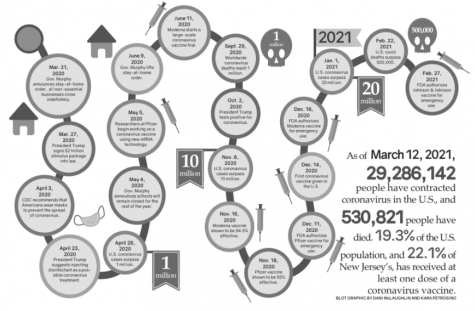Hyper-competitive CHS culture is harmful to students
September 17, 2021
Most eighth graders are not applying to CHS for the honors-level courses, but rather the specialized classes and welcoming environment. Still, it’s inevitable that those who pass the MCVSD entrance exam are, in one way or another, academically gifted.
Indeed, there’s nothing inherently wrong with offering a selective group of exceptional students a highly sought-after spot at a magnet school, however, it’s an entirely different beast when 80 of the county’s top-ranking students are suddenly grappling with the realization that they are, academically speaking, not nearly as exceptional as they once thought they were.
CHS students are typically accustomed to growing up as the “gifted students” throughout elementary and middle school, having been set apart from their peers by an early age due to their above-average intelligence in class. Perhaps even without knowing, they have viewed themselves differently than their peers.
However, upon entering CHS, they are, for possibly the first time in their life, surrounded by students who are at the same level they are. Pair this culture shock with an honors-level course load and they are no longer as self-assured in their intelligence, for it is no longer something setting them apart from their peers. They are now average.
From this point on, CHS students become desperate to climb their way back to the top, to find something that sets them apart from their peers once again. Fiercely competitive by nature, this is where the CHS culture of comparing suffering is established. Unable to compare grades, students now compare how few hours of sleep they have gotten, how much time they spend completing schoolwork each night, oftentimes even bragging that they barely understand the material being taught in class and are nearly certain they will fail the tests.
Quite bizarrely, the student to beat is now the one who, while presumably succeeding in school, is also destroying both their physical and mental health in order to do it, rather than the student who is able to get everything done and still have time to take care of themselves. While other high school students across the country are not exempt from this, it is all the more prevalent in CHS because every student is essentially at the same level. They have been placed into an environment in which there are very few ways to climb upwards, with no accelerated courses to set oneself aside from their classmates.
A study done by the Organization for Economic Cooperation and Development (OECD) found that 66% percent of students ages 15 and 16, across 72 countries, report feeling stressed about poor grades. Further, the same study found that those who report high levels of stress tend to have a worsen psychological, physical, social, and cognitive well-being. Even more concerning, according to youth.gov, the development of such high levels of stress may lead to substance use or suicidal thoughts or actions.
These students have not only sacrificed their mental and physical health for success, but they have also abandoned the prospect of any comprehension of what they are learning. Rather than retaining any information, they memorize what is necessary to succeed on a test the next day. This survival technique, though temporary successful, is not effective nor transferable to future workplaces.
With the inevitability of entering an even larger pool of competition after graduating from CHS, one without the backbone and guiding voice of parents or counselors, CHS students must modify their once relied upon techniques, for maintaining the destructive desire to be so unhealthy, in the name of success, is inherently harmful.









